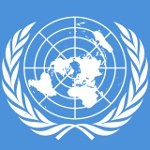International Day Against Unilateral Coercive Measures Date in the current year: December 4, 2026
 The International Day Against Unilateral Coercive Measures is an annual United Nations international day observed on December 4. It was created in 2025 to highlight the impact of such measures on human rights.
The International Day Against Unilateral Coercive Measures is an annual United Nations international day observed on December 4. It was created in 2025 to highlight the impact of such measures on human rights.Unilateral coercive measures are economic, financial, trade, or diplomatic measures imposed by one or a group of states on another state to pressure its government to change its external or internal policies or behavior. These measures contrast with multilateral sanctions, which are adopted through a collective international decision and authorized by the UN Security Council.
Unilateral coercive measures often target sectors such as banking, energy, transportation, and foreign exchange access, making it difficult for affected states to participate in the international market. These measures may also target individuals with or perceived to have political influence in another state, such as government officials, politicians, and businesspeople, as well as members of their families. Such sanctions may include freezing assets and imposing international travel bans.
Unilateral coercive measures are frequently debated in the context of international law because they are adopted by a single country or a small group of countries and lack the backing of a universally recognized collective decision.
Supporters of such measures argue that states have the sovereign right to decide with whom to engage economically. Critics contend that, despite their intended goal of affecting the government of the targeted state, unilateral measures can influence much broader aspects of a country’s economic and social life, creating humanitarian consequences.
In United Nations discourse, the term “unilateral coercive measures” is primarily used in human rights discussions, where it highlights concerns that restrictions imposed by a single state or group of states can indirectly harm civilian populations by impeding access to essential goods and services. For this reason, debates around these measures often focus on not only their legality, but also their proportionality and humanitarian impact.
Even when such measures are formally targeted at governments or specific sectors, their economic ripple effects can reduce the availability of medicines, medical equipment, spare parts, food items, and technologies that depend on international supply chains. Disruptions in banking and payment systems can impede humanitarian imports, raise transaction costs, and slow relief efforts. Over time, these pressures may contribute to inflation, declining public services, and reduced employment opportunities. This creates a disproportionate burden on ordinary people rather than political decision-makers.
The United Nations General Assembly established the International Day Against Unilateral Coercive Measures to raise awareness of the negative impact of such measures on human rights. In its resolution designating December 4 as the International Day Against Unilateral Coercive Measures, the General Assembly urged member states to refrain from imposing any unilateral measures that violate international law and the UN Charter, particularly those that affect developing countries and impede their economic and social development.
- Category
- UN Observances
- Tags
- International Day Against Unilateral Coercive Measures, international observances, UN international days, unilateral coercive measures